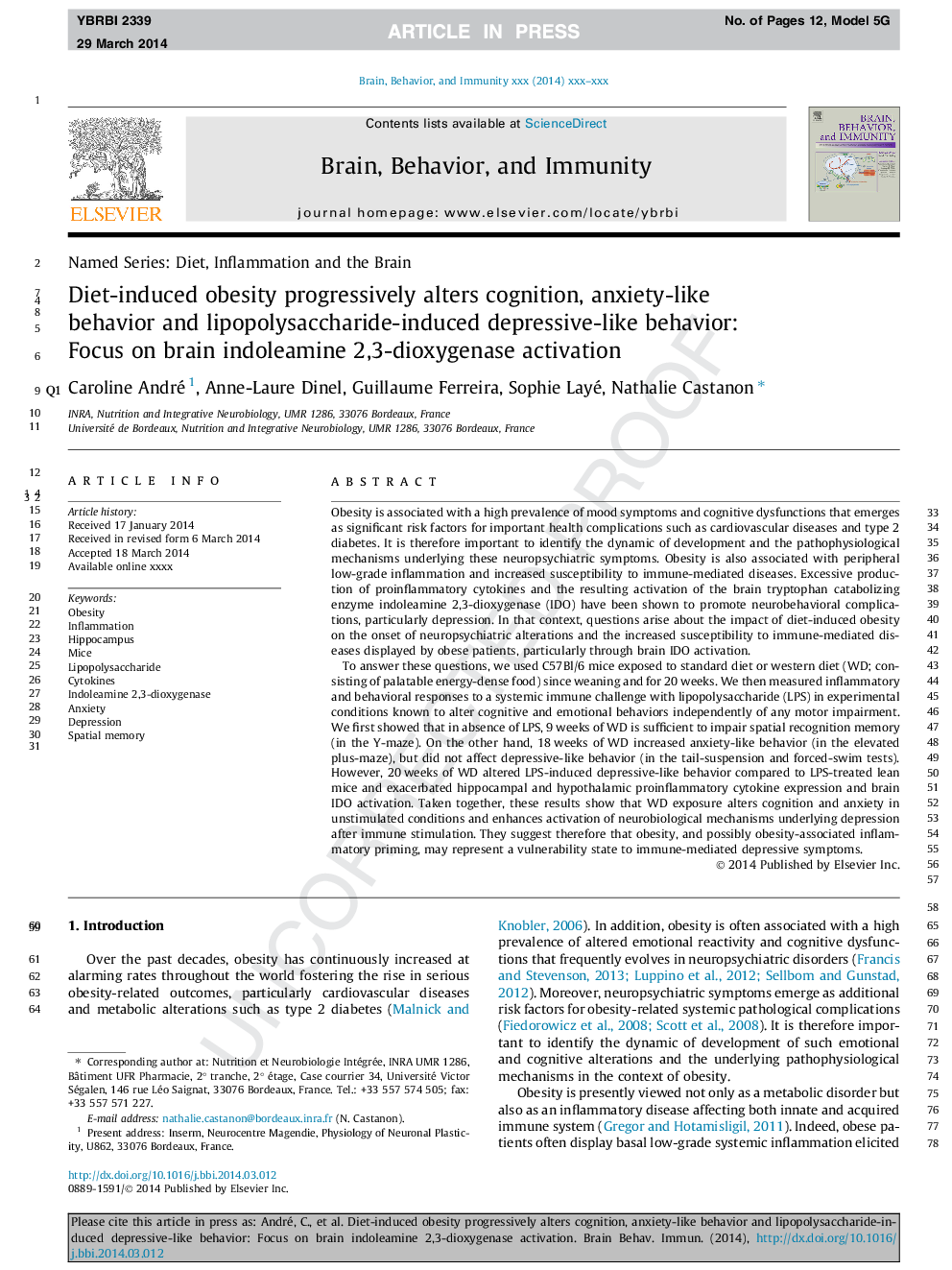| Article ID | Journal | Published Year | Pages | File Type |
|---|---|---|---|---|
| 7281448 | Brain, Behavior, and Immunity | 2014 | 12 Pages |
Abstract
To answer these questions, we used C57Bl/6 mice exposed to standard diet or western diet (WD; consisting of palatable energy-dense food) since weaning and for 20Â weeks. We then measured inflammatory and behavioral responses to a systemic immune challenge with lipopolysaccharide (LPS) in experimental conditions known to alter cognitive and emotional behaviors independently of any motor impairment. We first showed that in absence of LPS, 9Â weeks of WD is sufficient to impair spatial recognition memory (in the Y-maze). On the other hand, 18Â weeks of WD increased anxiety-like behavior (in the elevated plus-maze), but did not affect depressive-like behavior (in the tail-suspension and forced-swim tests). However, 20Â weeks of WD altered LPS-induced depressive-like behavior compared to LPS-treated lean mice and exacerbated hippocampal and hypothalamic proinflammatory cytokine expression and brain IDO activation. Taken together, these results show that WD exposure alters cognition and anxiety in unstimulated conditions and enhances activation of neurobiological mechanisms underlying depression after immune stimulation. They suggest therefore that obesity, and possibly obesity-associated inflammatory priming, may represent a vulnerability state to immune-mediated depressive symptoms.
Keywords
Related Topics
Life Sciences
Immunology and Microbiology
Immunology
Authors
Caroline André, Anne-Laure Dinel, Guillaume Ferreira, Sophie Layé, Nathalie Castanon,
